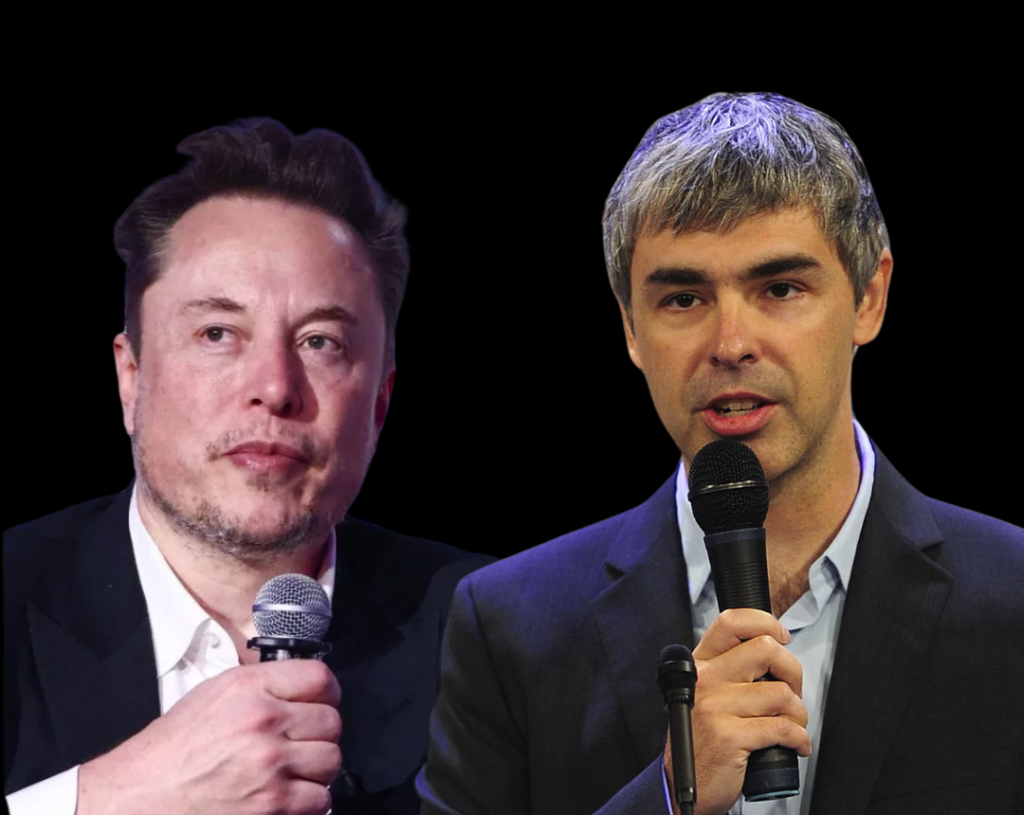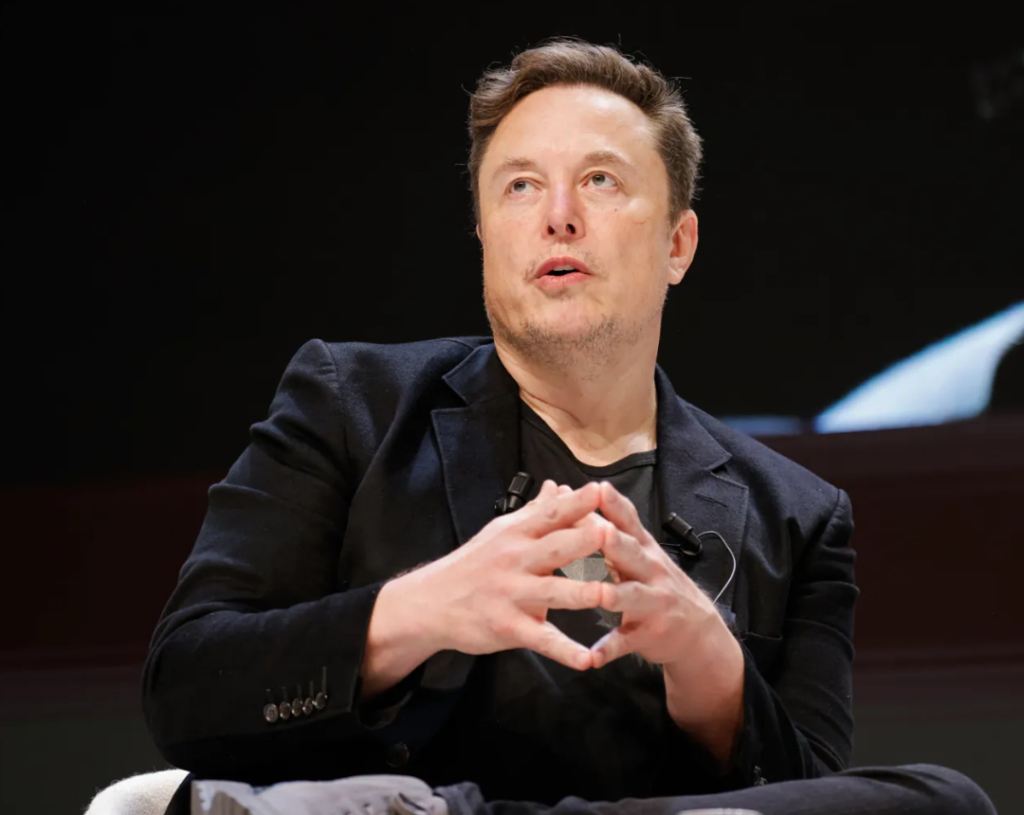In the world of billionaires and philanthropists, Larry Page, co-founder of Google, has made a decision that has raised eyebrows and sparked fierce debate. Instead of following in the footsteps of his peers, like Elon Musk, who are dedicating their fortunes to charitable causes, Page has chosen a different path. He is investing in space exploration and specifically, Elon Musk’s ambitious plan to colonize Mars.
This blog post delves into Larry Page’s bold decision and explores the reasons behind his choice to prioritize the exploration of the red planet over traditional acts of charity.
Background of Larry Page and Elon Musk

To fully understand the significance of Larry Page’s decision to invest in Elon Musk’s Mars colonization plan, it’s important to delve into the backgrounds of these two influential figures. Larry Page, the co-founder of Google, is no stranger to groundbreaking ventures. Throughout his career, he has shown a relentless pursuit of advancing technology and exploring new frontiers.
Elon Musk, on the other hand, is renowned for his innovative ventures such as Tesla, SpaceX, and Neuralink. With SpaceX, Musk has set his sights on colonizing Mars, a feat considered by many to be the ultimate form of exploration and human achievement.
Both Page and Musk share a common vision of pushing the boundaries of what is possible. Their entrepreneurial spirit and drive to create a better future have led them on divergent paths, with Page opting to support Musk’s space exploration endeavors instead of exclusively focusing on charitable causes.
In the following sections, we will delve deeper into the motivations and implications of Page’s decision, as well as explore the impact it may have on both philanthropy and the future of space exploration. Stay tuned!
The Bold Decision: Musk over Charity

Larry Page’s decision to invest in Elon Musk’s Mars colonization plan has been met with both anticipation and criticism. Many have questioned the choice to prioritize space exploration over charitable causes, which Page has previously been known for. However, understanding the rationale behind this decision can provide valuable insights into Page’s mindset and the potential impact on both philanthropy and the future of space exploration.
Page’s decision stems from a belief in the transformative power of technology and the potential for SpaceX’s Mars colonization plan to revolutionize human existence. By investing in this ambitious project, Page sees an opportunity to contribute to a new era of space exploration that could have far-reaching implications for our species.
While some argue that diverting funds from philanthropy is a missed opportunity to address pressing global issues, others argue that space exploration is a worthy cause in itself, with the potential to spur technological advancements that can benefit humanity at large. In the next sections, we will delve deeper into the motivations and implications of Page’s decision, exploring the potential benefits and drawbacks of prioritizing Musk over charity. Stay tuned to gain a comprehensive understanding of this bold move by Larry Page.
The Rationale Behind Page’s decision
Understanding the rationale behind Larry Page’s decision to prioritize Elon Musk’s Mars colonization plan over charitable causes is essential to fully grasp the significance of his decision. Page’s choice stems from his belief in the transformative power of technology and the potential for SpaceX’s plan to revolutionize human existence. By investing in this ambitious project, Page sees an opportunity to contribute to a new era of space exploration that could have far-reaching implications for our species.
Although some argue that diverting funds from philanthropy is a missed opportunity to address pressing global issues, others contend that space exploration is a worthy cause in itself. They believe that it has the potential to spur technological advancements that can benefit humanity at large.
In the following sections, we will delve deeper into the motivations and implications of Page’s decision. We will explore the potential benefits and drawbacks of prioritizing Musk over charity, providing a comprehensive understanding of this bold move by Larry Page. Stay tuned.
Implications for Google and the Tech Industry

Larry Page’s decision to prioritize Elon Musk’s Mars colonization plan over charitable causes not only has implications for Page himself but also for Google and the tech industry as a whole. By investing in SpaceX and supporting Musk’s ambitious project, Page is sending a bold message about Google’s commitment to innovation and pushing the boundaries of what is possible in technology.
This decision also reflects a shift in mindset within the tech industry. Traditionally, many tech giants have focused on philanthropic endeavors as a way to give back to society. However, Page’s choice to invest in space exploration underscores the belief that technology can be a powerful tool for solving global challenges.
By prioritizing Musk over charity, Page may face criticism from some who believe that addressing immediate social and environmental issues should be a higher priority. However, this decision could also inspire other tech leaders to think beyond traditional philanthropy and invest in groundbreaking projects that have the potential to shape the future.
In the next section, we will explore the potential risks and rewards of Page’s decision from a business perspective, examining how it could impact Google’s reputation, market position, and long-term growth. Stay tuned as we delve into the business implications of this bold move.
The Role of Philanthropy in the Business World

Larry Page’s decision to prioritize Elon Musk’s Mars colonization plan over charitable causes raises questions about the role of philanthropy in the business world. Traditionally, companies have engaged in philanthropic endeavors as a means to give back to society and establish a positive brand image. Through charitable contributions, businesses aim to address social and environmental issues, build goodwill, and enhance their reputation.
However, Page’s choice to invest in space exploration represents a departure from this conventional approach. It suggests that there is value in investing in futuristic and transformative projects that can have a significant impact on society. By supporting Musk’s ambitious venture, Page is not only aligning Google with cutting-edge innovation but also demonstrating a belief in technology’s potential to solve global challenges.
In this context, the question arises: Is prioritizing groundbreaking projects over traditional philanthropy a viable strategy for businesses? The long-term consequences of Page’s decision and the implications for Google’s reputation, market position, and long-term growth will be explored in the following section. As we delve into the business implications of this bold move, we will consider whether this signals a shift in the role of philanthropy in the tech industry, or if this is simply an exception to the norm.
Criticisms and Controversies Surrounding the Decision

Despite the potential benefits of Larry Page’s decision to prioritize Elon Musk’s Mars colonization plan, it has not been without its fair share of criticisms and controversies. Some argue that Page’s choice to invest such massive sums of money in a futuristic project instead of traditional philanthropic causes is misguided. They believe that businesses have a responsibility to address pressing social and environmental issues directly.
Critics also question the impact of Musk’s Mars colonization plan on practical and immediate challenges faced by society. They argue that the vast resources invested in space exploration could have been better utilized to fund initiatives that address poverty, inequality, and climate change, which have more tangible and immediate effects on people’s lives.
Furthermore, skeptics raise concerns about the potential risks and failures associated with such a grandiose venture. They emphasize that prioritizing groundbreaking projects over conventional philanthropy may lead to a disconnect between businesses and the societal needs they are expected to address.
In the next section, we will examine these criticisms and controversies in detail to gain a comprehensive understanding of the different perspectives surrounding Page’s bold decision.
Final Thoughts – Page’s Bold Decision and Its Potential Impact
In conclusion, Larry Page’s decision to prioritize Elon Musk’s Mars colonization plan over traditional philanthropic causes has ignited a slew of criticisms and controversies. Critics argue that businesses have a responsibility to directly address pressing social and environmental issues instead of investing vast sums of money in futuristic projects. They believe that these resources could have been better utilized to fund initiatives that have more immediate and tangible effects on people’s lives, such as poverty alleviation, inequality reduction, and climate change mitigation.
Skeptics also express concerns about the potential risks and failures associated with such a grandiose venture. They worry that prioritizing groundbreaking projects over conventional philanthropy may lead to a disconnect between businesses and the societal needs they are expected to address.
In the next section, we will delve deeper into these criticisms and controversies to gain a comprehensive understanding of the various perspectives surrounding Page’s bold decision and its potential impact. Stay tuned.
Read More


